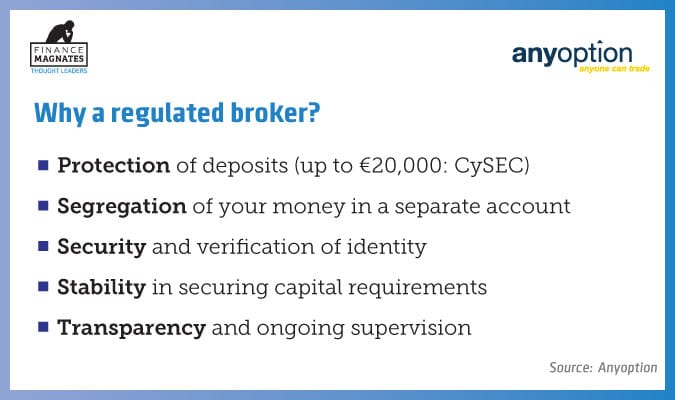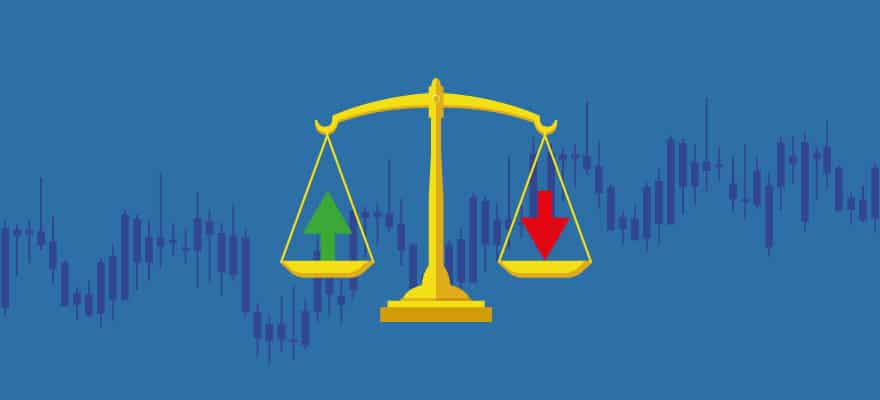Since the Cyprus Securities Exchange Commission (CySEC ) made the groundbreaking decision to regulate binary options trading activities in Cyprus in May 2012, binary options regulations have come a long way. This step towards regulating the industry has changed the way binary options brokers operate in the industry today.
It has also affected the way potential traders evaluate their brokers, as more traders insist on working with only licensed brokerage firms. While more binary options traders are beginning to see the benefits of binary options regulation, the majority of traders in the industry are still in the dark about what these regulations are all about.
The majority of traders in the industry are still in the dark about what these regulations are all about
Understanding the Legal Framework
Before we go any further, we must understand that binary options brokers are not legally obligated to have their operations regulated. Those brokers which have sought regulatory oversight for their operations are merely providing their traders an additional benefit as well as gaining a competitive edge themselves.
In many ways, you could say that the binary options trading industry is very much like the online Forex trading industry during its infancy period.
Today, some of the leading forex brokers in the industry are valued at billions of dollars and hardly any forex brokers have chosen to remain unregulated.
Since it took some years before the forex industry to be fully regulated, one can expect the same for the binary options trading industry in due course.
The Need for Regulation
Although many binary options brokers today are still not regulated, it doesn’t mean their operations are illegal in any way. In fact, there is no definitive legal framework which classifies binary options trading as being illegal. So why is there a need to regulate this industry as all?

First of all, we exist in a dog eat dog world. Any business which wants to get ahead of the competition must use every advantage that it has at its disposal.
Sometimes, these methods which the brokers use may not be entirely ethical and hence the need for regulation to protect legitimate brokers from unfair business practices. Secondly at the other end of the scale, regulations are needed to safeguard the interest of traders and prevent abuses from unscrupulous brokers and ensure that they adhere to acceptable business practices.
Regulations are needed to safeguard the interest of traders and prevent abuses from unscrupulous brokers
What Regulation Means for you as a Consumer
Here’s is why regulation is so important for you personally:
- Under the Investor Compensation Scheme your deposits are protected should the broker you are working with go belly up. This means that with CySEC regulation for instance you’re deposit of up to €20,000 is protected.
- Your deposits are segregated – this means that your funds are kept separate from the brokers personal funds. This offers a layer of fund protection.
- Regulated brokers require identification, proof or address and more to ensure that client funds do not come and are not funneled into terrorism, drug industry or used for money laundering or fraud.
- The broker must set aside an amount of money in advance of receiving regulation in order to prove that they are well capitalized and can cover their levels of exposure eg. Pay clients back for big wins.
- The regulated brokers must maintain levels of transparency and reporting whereas non-regulated have nothing to prove.
Transparency
Businesses have always been reluctant to give away their competitive advantage which is why their operations are usually shrouded in secrecy. Of course given the need to protect this edge, we do expect these businesses to operate in a manner which will not hurt our own interests as a consumer.
Unfortunately we can’t always rely on the integrity of brokers to be fair to their clients. We only need to look at the banking industry to know how true this can be and so why should traders expect any less from their brokers?
We can’t always rely on the integrity of brokers to be fair to their clients
Only with regulation can brokers be compelled to act in a transparent manner and not operate in ways which gives them undue advantage over their clients.
For example recently in April 2016, CySEC under pressure from the European Securities Markets Authority (ESMA) issued a directive requiring binary options brokers under its jurisdiction to display continuous price feeds for their option contracts as well as disclosing how the strike prices are arrived at. This was enacted due to a feeling or belief that some brokers were manipulating their price feeds.
Conclusion
Despite the slow pace which binary options regulation has been progressing in the industry, it’s only fair to note that there has been some progress in this area as well. In fact, many brokers having noted the competitive advantage that they can gain over non regulated competitors have sought to park their operations in Cyprus in order to be regulated by CySEC.
Although CySEC is currently the only major regulatory agency that is regulating the binary options trading industry, other agencies such as the Financial Conduct Authority (FCA) are also looking at regulating the industry in their own jurisdiction.

Idan Levitov
Idan Levitov is the VP trading of anyoption.com. He is a seasoned professional with years of experience in trading and expertise in the binary options hedging field.












